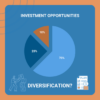Buying a house, car, and other big purchases like furniture or appliances can be an exciting time, but it can also be very stressful. One should consider many factors personal to them and their own tradeoffs.
“Underlying many big financial decisions people make within a budget is a tradeoff between consuming more now
(less saving) versus saving more to provide for more spending in the future. The reason people typically buy a
house with 80% or more of debt financing is for the lifestyle they want now rather than waiting until they save enough
to purchase the house for all cash. Promising to pay back the loan with interest over 30 years is promising (trading)
future income in order to consume more now. The tradeoff associated with funding a retirement account is to invest
more (spend less) today in order to provide for more consumption in the future. Why do people do both at the same
time? The combination of tax law incentives, leverage and income growth affect our opportunities. Essentially, we
use the tools of wealth management to attain a preferred pattern of lifetime consumption (happiness) for a given
income stream. Freedom also extends to the spending choices from that income stream. For the same income
stream, different lifestyles represent personal taste and preferences. No judgments on that are made here.”
– excerpt from DIY Wealth Management, Part IV: Life, Liberty and the Pursuit of Happiness by Stanley J. Kon PhD.
But, with clarity that these are personal economic decisions, one of the most important steps is figuring out if you can feasibly afford it, especially if you’re trying to improve your wealth management strategy. Before you jump in head first, check out these key considerations to help you determine whether you’re in a financially good place to buy.
7 Signs You Can Afford a House, Car, Etc.
Getting a clear picture of your financial health is crucial for successfully buying a house, car, boat, and other pricey purchases. After all, you don’t want to bite off more than you can chew! Here are six signs that you can actually afford to buy:
1. You’ve considered ALL of the costs
The purchase price doesn’t take into account all costs, such as taxes, insurance, and maintenance. Make sure to look beyond the purchase price when determining affordability.
2. You’re not dipping into your emergency fund
An emergency fund is meant to help you deal with stressful situations like losing your job or getting injured. If you have to use some or all of your emergency fund, then it’s a strong indicator that you’re not yet ready to buy.
3. You have good credit
Good credit is necessary to get a mortgage or car loan. Your credit score is determined by the information lenders see when reviewing your application. Before you apply for a loan, you should review your credit report to ensure there aren’t any errors and that all of your accounts are current.
You can check your score for free once a year at AnnualCreditReport.com. If you think something isn’t right, contact one of the three national consumer reporting companies: Experian, Equifax, and TransUnion.
4. You can pay the full down payment
Paying the full 20% down payment helps you avoid paying for private mortgage insurance, which can cost anywhere from 0.3% to 1.2% of the balance on the loan. If you can’t afford the 20% down payment, private mortgage insurance can end up adding thousands of dollars to your total cost. Ripsaw has a tool that helps you determine, find, and move the money around to gather the down payment.
5. You have a low debt-to-income ratio
A debt-to-income ratio (DTI) is all your monthly debt payments divided by your gross monthly income. It’s one of the main numbers that lenders use to judge a loan application. Although loan products and lenders have different DTI limits, in general, having a low DTI ratio improves your chances of getting the loan or line of credit you want.
6. You won’t have trouble meeting your financial obligations
It’s important that your purchase doesn’t take an exorbitant percentage of your monthly budget and you end up in a “house rich, cash poor” situation. If you’re able to meet your financial obligations without a problem, then you’re in a solid position to move forward on the purchase.
7. You’ve run Home/Car/Other Big Purchase scenarios through Ripsaw Wealth Tools
Ripsaw not only allows you to assess the implications of the purchase on your personal wealth portfolio, but it also helps you determine where to find the down payment and associated trade-offs with moving the money around. It also lets you analyze the book and market value of an asset and its corresponding liability. Further, Ripsaw can help you make sure you have good diversification in your overall personal wealth portfolio taking into account real assets.
Make Smarter Financial Decisions
Whatever your big purchase might be, it’s vital that you budget, analyze, and plan for it. Make sure to plan ahead and save money so you don’t end up in a financial hole that’s hard to get out of. A great way to ensure that you can actually afford a big purchase like a home or car is to gain control of your financial life. Only you can decide for yourself what financial decision you make.
Start for free with the Ripsaw® Wealth Tools app to get a full wealth picture and optimize your investment portfolio!


